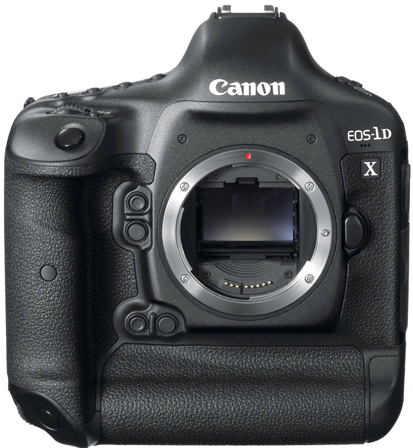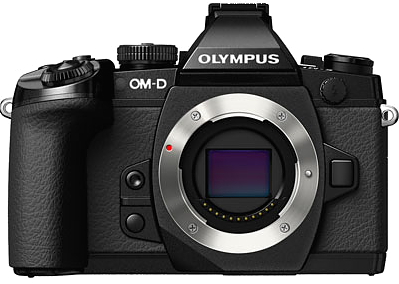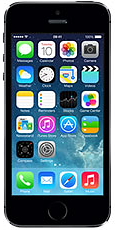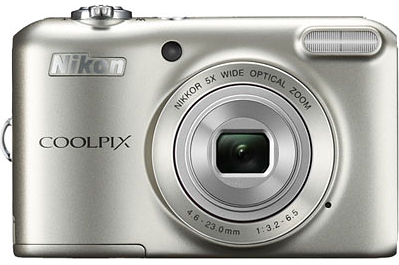|
The
Definition of a Professional Camera! |
When you visit the Internet
gear forums, you will
 find
there are many debates as to what is the definition of a professional camera?
Many state that a professional camera is a Canon EOS 1D-X DSLR or a a
Nikon D4 but could
it not be a entry level pocket
compact, or even a camera in
a mobile phone? find
there are many debates as to what is the definition of a professional camera?
Many state that a professional camera is a Canon EOS 1D-X DSLR or a a
Nikon D4 but could
it not be a entry level pocket
compact, or even a camera in
a mobile phone?
I suppose if you address the
question in a logical
manner, any camera which is
being used by a professional
photographer to capture
images which are then sold
to a customer could be
deemed a professional
camera.
Whether it is portraits,
landscapes, wildlife, sports
or any other area of
photography, the camera and lens
has to be able to deliver
the desired image size and
quality that the
customer wants. The
photographer may require a
fast frame speed in a camera
to capture their images,
low noise capability for
night shots, high definition
for landscapes and all
relative to the final size
of the print or the digital
image. The professional
photographer is a different
breed
 from the
hobbyist
as their livelihood depends
on sales to produce their
income. from the
hobbyist
as their livelihood depends
on sales to produce their
income.
The professional
photographer is evolving,
some may argue that the
standards are dropping in
professional photography and
in some cases this may be
true. However the evolution
is driven by the Internet,
mobile apps and wireless
technology. Not only is the
camera technology evolving
but the methodology for
promoting digital image
sales is also a driving
factor as to what cameras
and lenses a professional
photographer uses. Thanks to
mobile applications, many
digital images are now
displayed on a mobile phone,
even whole albums are
supplied via wireless to the
client's mobile phone.
Today
many cameras such as compact
system, DSLR or even an inexpensive compact can produce images AND
videos that sell
without the need to purchase
a top of the line camera and
lens. The majority of
cameras now have a 16MPixel
digital sensor or higher;
even a mobile phone can
 capture
an image that sells in the
newspapers and television
and just look at the number
of mobile phone videos that
have appeared on television
that depict great events in
our history, the crisis in
Egypt as one example.
Photography is changing at a
rapid pace, the age of the
touch screen is here, the
wireless communication
between the photographer and
the camera as well as the
instant electronic transfer
of digital images to the
website, the magazine
proofing desk or the
television studio editor is
now the norm and that
capture and transfer can be
made by a person in the
street with a mobile phone
who is out walking their
dog. That image may be
transmitted throughout the
world and sold over and over
again to various agencies
and overnight that person is
making large amounts of
money out of it. capture
an image that sells in the
newspapers and television
and just look at the number
of mobile phone videos that
have appeared on television
that depict great events in
our history, the crisis in
Egypt as one example.
Photography is changing at a
rapid pace, the age of the
touch screen is here, the
wireless communication
between the photographer and
the camera as well as the
instant electronic transfer
of digital images to the
website, the magazine
proofing desk or the
television studio editor is
now the norm and that
capture and transfer can be
made by a person in the
street with a mobile phone
who is out walking their
dog. That image may be
transmitted throughout the
world and sold over and over
again to various agencies
and overnight that person is
making large amounts of
money out of it.
Today, everyone with a camera in a mobile phone is a photographer, and
capable of capturing that photojournalist shot. Recently
(31st May
2013) the Chicago Sun-Times
laid of 28 staff
photographers and is
counting on its remaining
staff of journalists to also
become mobile photographers.
I suppose that makes them
professional photographers
because they are paid staff
and their
photojournalist
images will eventually
find their way into the
Chicago Sun-Times. I think
it very unlikely that they
will be toting a 'top of the
line' Canon EOS 1D-X or Nikon
D4 DSLR
camera.
Reprinted from
Professional Photographer
-
Internationally renowned,
Bangor-based photographer,
Gerry Coe, has received
recognition for his
excellence in iPhone Art
photography after being
awarded a Fellowship by the
British Institute of
Professional Photography (BIPP). The
recognition marks Gerry’s second Fellowship, his first being in
illustrative photography, and his achievement is also a first in this
genre of photography.
BIPP President, Roy Meiklejon FBIPP, said, “While
recognising the constraints of the technology, this qualification
rewards the creativity and skill of one of Northern Ireland’s top
photographers.” Well known for his ‘pencil’ and family portraits, Gerry
is the only photographer in Ireland to receive a double Fellowship from
the BIPP, Gerry
said, “I have been working with my iPhone4 over the last two years. I
first produced a book on Tuscany all taken on the iPhone, and as my
expertise increased and I took more photographs I thought it would be
wonderful to be able to do a panel of pictures all taken on an iPhone
camera. I have always been keen to prove that you do not need the
biggest and best megapixel camera you can buy to make great
photographs”. He added, “I am overwhelmed with how the panel of images
have been received and the compliments from some of the people I admire
most in our photographic profession”.
The Professional
Photographer/Digital Artist
- I once
 visited
my hometown harbour and there was an old guy
(younger than me) with a
inexpensive compact
camera shooting the harbour
with it's boats from
various angles. He had the
look of an artist so out of
curiosity, I struck up a
conversation with him. It
turned out that he was a
photographic artist who
photographed an image of the
desired scene and then
later used a digital tablet
to paint over the camera
produced jpeg. The end
result was professionally
printed by a third party and
framed to be sold to
customers who visited his
small art gallery.
Apparently he was making a
very good living out of this
venture and selling limited
prints. A digital compact
was more than enough camera
for the initial capture. visited
my hometown harbour and there was an old guy
(younger than me) with a
inexpensive compact
camera shooting the harbour
with it's boats from
various angles. He had the
look of an artist so out of
curiosity, I struck up a
conversation with him. It
turned out that he was a
photographic artist who
photographed an image of the
desired scene and then
later used a digital tablet
to paint over the camera
produced jpeg. The end
result was professionally
printed by a third party and
framed to be sold to
customers who visited his
small art gallery.
Apparently he was making a
very good living out of this
venture and selling limited
prints. A digital compact
was more than enough camera
for the initial capture.
Moving Forward with
Digital Cameras -
Today we use basic 'consumer
branded' cameras that
deliver technology that we
used to find only in 'top
end' premium cameras, even
35mm 'full frame' digital
sensor cameras are now
almost at consumer price
levels.
As
we move forward and the
camera technology shrinks in
size, as the frame rate and
the autofocus improves, as
the digital sensor
resolution vs noise
improves, as the lenses
become more compact,
lightweight and yet their
focal range increases - the
definition of a professional
camera will become even more
blurred!
If you have enjoyed this article - please donate to my
Charity of Choice - The Sick Kids
Richard Lawrence
Scotland
United Kingdom
Back to Articles Page
|



